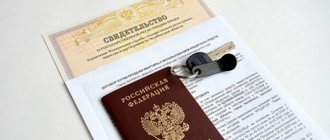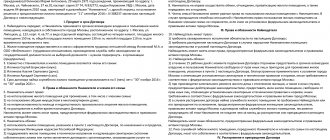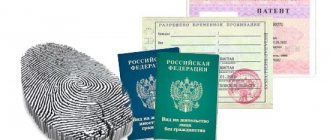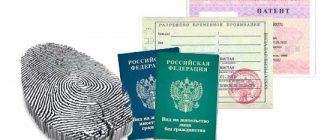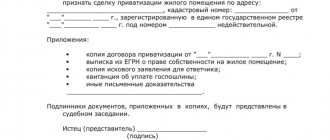When will the privatization of housing stock in the Russian Federation be completed?
Initially, several years were allotted for privatization. Since 1991, the Government of the Russian Federation has provided Russians with the opportunity to re-register state-owned housing as personal property. But the grace period, when you can complete all stages for free, has already been extended several times. At the moment, the rule is that all citizens can undergo the procedure before the end of 2021. And until 2020 - Crimeans and residents of dilapidated real estate. The category of orphans has the right to privatize living space before the expiration of the social tenancy agreement for the housing in which the child lives.
At the current stage, Russians have managed to privatize 30 million housing units, which is 80% of the housing stock. Moreover, according to Government estimates, such a high indicator is not found almost anywhere in the world. Since the procedure cannot last indefinitely, a decision was made to set a final deadline. But news often appears in the media that privatization after a year may become permanent. At the moment there is no confirmation of such information. Therefore, no one knows what will happen next, whether it will be paid or free.
Not every living space can become personal. It is prohibited to transfer into private property:
- real estate that has been awarded museum status;
- office premises;
- living space in emergency buildings;
- real estate in protected areas;
- apartments and houses in closed military zones and facilities;
- dormitories.
Housing becomes a property free of charge, regardless of its market, cadastral or any other value. However, there will still be certain costs.
So a certificate that confirms the fact that a citizen has not previously participated in privatization procedures costs 300-500 rubles. Registration of a registration certificate for real estate - 1,500 rubles. To register the transfer of ownership, you will need to pay a state fee of 2,000 rubles. An extract from the Unified State Register will cost 200 rubles. You may have to pay for other certificates or photocopies of documents. On average, 4-4.5 thousand rubles are spent on the procedure.
The Supreme Court explained in what cases Russia continues to own privatized property
In February 2021, the Judicial Collegium for Economic Disputes of the Supreme Court of the Russian Federation recognized the ownership of the Russian Federation to the property privatized in the 1990s. bomb shelter. The court came to the conclusion that the object, which by force of law could not become private property, did not leave the possession of the Russian Federation, which means that the rules of limitation are not applicable in this case (Determination No. 306-ES19-23752 in case No. A57- 23624/2018).
The bomb shelter was transferred to a private person
Until 1991, on the balance sheet of the state enterprise Saratov Aviation Plant there was an industrial building with a built-in civil defense facility, in the basement of which there was a protective structure (shelter No. 5).
On the basis of Decree of the Council of Ministers of the USSR dated January 10, 1991 No. 19, the property included in this plant was transferred to its employees. In February 1991, during privatization, the collective enterprise “Saratov Aviation Plant” was registered, which, in accordance with the Order of the State Committee of the RSFSR for State Property Management dated May 27, 1992 No. 181-r, received a certificate of ownership of the privatized property.
Later, this legal entity was reorganized, and JSC Yuzhny Aerodrome was separated from its composition, which in May 2011 established Perspektiva-2011 LLC. As payment for the share in the authorized capital of the latter, property was used - the building in which shelter No. 5 was located. In July 2011, Perspective-2011 registered ownership of the property.
The Federal Property Management Agency “learned” about the violation of property rights of the Russian Federation only in 2021.
In October 2021, the Territorial Administration of the Federal Property Management Agency in the Saratov Region filed a claim against Perspektiva-2011 LLC to the Arbitration Court of the Saratov Region to recognize the ownership of the Russian Federation in the shelter and to reclaim it from illegal possession. The department explained that it learned about the location of this civil defense facility in one of the buildings of a former state enterprise on November 20, 2021 from an appeal from State Duma deputy Valery Rashkin.
The plaintiff considered that the registration of the defendant’s ownership of a non-residential building, which includes a shelter, violates the rights and interests of the Russian Federation as the owner of protective structures, as well as the rights of an unlimited number of people to protect life, health and to use means of collective and individual protection provided for Law on the protection of the population and territories from emergency situations.
According to the department, the inclusion of the shelter in the defendant’s property was carried out in violation of legal requirements, since civil defense facilities may belong exclusively to the Russian Federation. The plaintiff insisted that the state remained the actual owner of this property, and the transactions on the basis of which Perspektiva-2011 LLC received asylum were void.
The defendant insisted that the characteristics of the shelter presented by the plaintiff did not coincide with the characteristics of the building owned by Perspectives-2011. The company claimed that it was a bona fide purchaser and that ten protective structures of the Saratov Aviation Plant were privatized in accordance with applicable legal norms as part of a single property complex. Additionally, the defendant claimed that the plaintiff had missed the statute of limitations.
The first instance satisfied the vindication claim
In order to find out whether the shelter and part of the building owned by Perspektiva-2011 LLC are the same object, the AS of the Saratov Region ordered a forensic examination. Having compared the expert's opinion with other evidence, the first instance established that the controversial civil defense structure and the basement of a non-residential building owned by the company are one and the same object.
Having analyzed the legislation, the court came to the conclusion that both at the time of privatization and at the time of alienation of the disputed premises to the defendant, civil defense facilities, including shelters, could not be privatized. On this basis, the court decided that the agreement on the establishment of Perspektiva-2011 LLC and the act of acceptance and transfer of property regarding the transfer of the shelter to the authorized capital of the company are void and do not entail legal consequences, since in the case under consideration the disputed premises were not removed from federal ownership .
The first instance rejected the defendant's argument that he was a bona fide purchaser. “The disputed property was not subject to alienation not only because the alienator was not authorized, but also because of the limited circulation, which, in turn, excludes the application of the provisions of Art. 302 of the Civil Code of the Russian Federation,” is stated in the decision.
The arbitration court also did not accept the reference to the missed statute of limitations. Applying paragraph 57 of the Resolution of the Plenum of the Supreme Court, Plenum of the Supreme Arbitration Court of April 29, 2010 No. 10/22, he indicated that in cases where the violation of the plaintiff’s right by making an inaccurate entry in the Unified State Register is not associated with deprivation of possession, claims aimed at challenging registered right, the limitation period does not apply.
As a result, the claim of the Office of the Federal Property Management Agency to claim shelter from someone else’s illegal possession was satisfied. “Since the decision to reclaim the plaintiff’s disputed property is the basis for making an entry in the Unified State Register for the disputed property, the court has no grounds for satisfying the demands for recognition of this right for the plaintiff,” the first instance explained.
The appeal justified the refusal to apply the statute of limitations in a different way
The Twelfth Arbitration Court of Appeal agreed with the conclusions of the first instance, but considered that the limitation period should be applied in this case. In her opinion, the controversial protective structure, which is part of a non-residential building, left the possession of the Russian Federation at the time an entry was made in the Unified State Register of Rights Holders.
The court proceeded from the fact that the limitation period in cases of reclaiming property from someone else’s illegal possession should be calculated from the moment when the owner learned or should have learned that the property had left his possession and who the proper defendant was in a claim to protect this right. Referring to paragraph 4 of the Resolution of the Plenum of the Supreme Court of September 29, 2015 No. 43 “On some issues related to the application of the provisions of the Civil Code of the Russian Federation on the limitation period”, the second instance recalled that, according to the requirements of public legal entities represented by authorized bodies, the limitation period is calculated from the day when the public legal entity represented by such bodies learned or should have learned about the violation of its rights. At the same time, the department learned information about the defendant from USRN extracts, from the moment of receipt of which the three-year statute of limitations had not expired, the court concluded.
The decision of the first instance was left unchanged.
The district court returned the case for retrial
The Arbitration Court of the Volga District indicated that the lower authorities did not establish when the disputed object left the actual possession of the Russian Federation and when the authorized body knew or should have known about it. The cassation emphasized that the appellate court erroneously identified the state's loss of ownership of the disputed property with the moment of making an entry about the copyright holder in the Unified State Register, and therefore did not attach legal significance to the moment when the management learned or should have learned that the disputed property left the possession of the Russian Federation and passed into possession of another person.
As stated in the resolution, the first such owner of the disputed object was the Saratov Aviation collective enterprise, and only then - Perspektiva-2011 LLC, which the management could not have been unaware of. At the same time, when the owner of the property changes, the period for protecting the rights of the owner who did not timely exercise the right to judicial protection does not begin to run again, the court recalled. “Therefore, in this case, according to the stated vindication claim, the statute of limitations should be calculated from the moment when the property came into the possession of the collective enterprise Saratov Aviation Plant during its privatization, which could have happened no later than 1991, and not when the management learned about the registration the property rights of the Perspektiva-2011 society to it,” the cassation emphasized.
The Arbitration Court of the Volga District drew the attention of lower authorities to the fact that the disputed property was not excluded from the privatized one. From the moment of the redemption of state property and the issuance of an order to issue a certificate of ownership of the privatized property, the plaintiff’s legal predecessor (State Committee for Property Management), and therefore the plaintiff himself, should have known about the acquisition of the controversial civil defense structure by the plant into private ownership.
However, from 1991 to 2021, neither the plaintiff nor other public authorities acted as representatives of the owner of the civil defense structure, did not bear the responsibilities of the owner, did not exercise control over the disputed structure, and did not enter into any agreements with the plant or with its subsequent owners on the use of civil defense structures as federal property was not concluded. “Thus, from the moment of privatization of the civil defense structure as part of the plant building, the state lost its ownership rights and did not take action to actually own this property,” the cassation emphasized.
The court added that the issue of recognizing the right of federal ownership of the disputed structure was subject to resolution according to the rules of a vindication claim, to which the rules of limitation apply. Therefore, neither the state registration of property rights “Perspective-2011”, nor the receipt by the department of information from the Unified State Register in 2021, does not affect the determination of the moment when the limitation period begins to run on the stated vindication claim. In addition, the cassation court emphasized, the lower courts unreasonably ignored the defendant’s arguments that the plaintiff learned about the disputed property’s status as an independent civil defense facility at least from the decision of the Saratov Region AS dated May 13, 2009 in case No. A57-22602/2008 .
Taking into account the above, the cassation overturned the acts of the lower courts and sent the case for a new trial at the first instance.
The Supreme Court, refusing vindication, satisfied the claim for recognition of the right
The Department of the Federal Property Management Agency appealed to the Judicial Collegium for Economic Disputes of the Supreme Court of the Russian Federation only the ruling of the Volga District Administrative Court. However, the Court, having checked the legality of those acts that the applicant did not appeal, came to the conclusion that all lower authorities made mistakes when considering this dispute.
According to the Supreme Court, the department filed a claim for recognition of ownership of real estate, in respect of which a record of the defendant’s ownership was made in the Unified State Register of Real Estate. At the same time, the ownership right of the Russian Federation to the disputed object is recognized as legally valid in the absence of state registration, since it arose before the Law on State Registration of Rights to Real Estate and Transactions with It came into force (Clause 1, Article 6 of this act).
At the same time, the Court noted, at the time of concluding the agreement on the transfer of property, including the disputed shelter, into collective ownership, there was no special regulation of the privatization procedure. The transfer of ownership was regulated by the general rules of paragraph 2 of Art. 7 of the Law on Property in the RSFSR, according to which the right of ownership of the acquirer of property arises from the moment of transfer of the thing, unless otherwise provided by law or agreement.
The Supreme Court drew attention to the fact that the first and appellate instances established that in the basement of the building there is a civil defense structure equipped as a shelter. “There is no evidence of the removal of the shelter from the possession of the Russian Federation, or any use of this premises by either the defendant or his legal predecessors in the case materials. This fact excludes both the actual transfer of the disputed shelter by the public owner to the enterprise and the transfer of ownership of the shelter to the enterprise as a result of privatization, as well as further succession as a result of the contribution of property to the authorized capital of the defendant,” the Court emphasized. In addition, he added, representatives of the defendant confirmed that from the moment the building was included in the defendant’s authorized capital, they did not own this premises and that they were ready to “alienate the disputed object in favor of the Russian Federation in the form of a gift or donation.”
Regarding the possibility of considering Perspektiva-2011 LLC as a bona fide acquirer, the Armed Forces of the Russian Federation noted that raising such a question is possible in a situation where the thing has left the owner’s possession. In this case, the Court decided that the asylum was not removed from the state’s possession.
According to the Court, the first instance made a reasonable conclusion that in this case the violation of property rights of the Russian Federation by making an inaccurate entry in the Unified State Register is not associated with deprivation of ownership, and, referring to paragraph 57 of Resolution No. 10/22, correctly recognized that claims aimed at challenging a registered right are not subject to limitation. As stated in the Supreme Court’s ruling, the courts, which found that, in fact, the department filed a claim “to restore ownership” of the state to the disputed object, had no legal grounds for refusing the claim for recognition of ownership, which is not subject to limitation.
At the same time, the Supreme Court agreed that since the company is not and has never been the owner of the shelter, which did not come into its possession, the vindication claim filed by the management was not subject to satisfaction. On this basis, the Supreme Court overturned the acts of lower authorities and recognized the ownership of the Russian Federation in the controversial protective structure.
Experts gave different assessments of the Supreme Court's findings
Arbitration lawyer at the VEGAS LEX law firm Stanislav Matyushov believes that the position of the Supreme Court in this case cannot be called indisputable. “Previously, courts for the most part refused to vindicate civil defense facilities due to the expiration of the statute of limitations, despite different approaches to determining the beginning of its period. Meanwhile, what is primarily confusing is the fact that when two mutually exclusive demands were presented (vindication and recognition of ownership rights), the territorial department of the Federal Property Management Agency actually transferred to the court the responsibility of proving the key circumstance in the case: whether the disputed property left the actual possession of the Russian Federation or not,” – he emphasized.
At the same time, the expert drew attention to those features of the case due to which this ruling of the Supreme Court may not become practical. “Firstly, as follows from the text of the judicial acts, the controversial civil defense facility became the property of Perspektiva-11 LLC not under a privatization transaction completed in early 1991 before the ban on the transfer of civil defense facilities to private ownership was introduced, but in mid-2011 as a result of reorganization in the form of a spin-off, noted Stanislav Matyushov. “Secondly, for reasons that are not entirely clear, the defendant, who had previously challenged judicial decisions taken not in his favor, confirmed at a meeting of the Judicial Collegium for Economic Disputes that he never owned the disputed property and was ready to transfer it to the state as a gift or donation.” . The latter, according to the expert, allowed the Court to make an undisputed conclusion that the civil defense protective structure did not leave the state’s possession.
Veronika Perfilyeva, senior lawyer at the real estate and investment practice at Kachkin and Partners, said that when considering a vindication claim, ownership or disposal from it must be established by the court as a fact. “The Supreme Court established the fact that the disputed object did not leave the possession of the Russian Federation. It should be noted that in this case the Russian Federation also did not lose the right of ownership, since the ownership of the object initially arose with the state and did not pass either to the defendant or to his legal predecessor in the process of privatization,” she explained.
According to Veronica Perfilyeva, the Supreme Court absolutely correctly indicated that in the event of an improper formulation by the plaintiff of the method of defense, when the material legal interest pursued by him is obvious, the court is obliged to independently determine from what legal relationship the dispute arose and what norms of law are to be applied when resolving the case in order to ensure restoration of the violated right, the protection of which was sought by the plaintiff. This corresponds to the provisions of the Arbitration Procedure Code of the Russian Federation, as well as the previously expressed positions of the Supreme Arbitration Court of the Russian Federation and the Supreme Court of the Russian Federation itself, the expert added.
“In the theory of procedural law, the question of whether the court has the authority to “re-qualify” a claim or make the plaintiff think about the need to choose a different method of protecting the right is debatable. Nevertheless, the current norms of procedural legislation allow this to be done. As practice shows, this approach is generally supported by the courts and, in my opinion, serves to implement the principle of procedural economy. However, in the case under consideration, the claim for recognition of property rights, which are not subject to the statute of limitations, was initially stated by the plaintiff, and therefore the Supreme Court did not “re-qualify” the claim,” explained Veronika Perfilieva.
She noted that, in general, the prospects for considering a dispute on the recognition of property rights of the Russian Federation or, conversely, the right of private ownership of such real estate depend on whether the disputed object is proven to have the legal status of a civil defense protective structure (shelter). If the object is such, it will be recognized as federal property. “If, for one reason or another, this fact is not established, for example, simply due to the lack of necessary documents, the disputed object, including one that actually corresponds to the characteristics of a protective structure, will remain part of the privatized property (subject to its availability in the privatization plan) or will be recognized as state property, the privatization of which is possible in the manner prescribed by law,” the lawyer concluded.
Participants of the procedure
Participants in the real estate privatization program can become:
- All residents who live under a social tenancy agreement in apartments or houses owned by the state or municipality. From which it follows that even minor children from infancy have the right to become full participants in the program.
- Children under 14 years of age. But in this case, their interests are represented by their parents, adoptive parents or legal guardians.
- Teenagers from 14 to 18 years old. Such residents have the right to represent their interests and write a statement on their own, but are required to notify the parent, adoptive parent or guardian.
- Citizens over 18 years of age go through all stages of privatization independently. However, they must remember that if one housing has already been transferred into their ownership free of charge, then when the second property is privatized they will have to pay. But if a child took part in the procedure as a shareholder before reaching 18 years of age, he retains the right to one free privatization of state or municipal housing.
- If a citizen was absent for objective reasons at the time of privatization of shared housing, for example, he served in the army, he has the right to receive his share when he returns.
The terms of free privatization will be limited
When does free privatization of apartments in Russia end? Until what time is it valid? The decision on the next extension of the deadline until March 1, 2021 was made by the Government on February 29, 2016 (Federal Law No. 33). According to the Minister of Construction M. Menya, most likely, this deadline will be final .
This is already the fifth postponement of the expiration date of the law on free privatization, however, during its validity, not all willing citizens were able to exercise their right, and in most cases this happened for objective reasons. Let us remind you in what year the privatization of apartments and housing in Russia began; this is already distant 1991.
Numerous appeals from citizens forced the Government to think about another extension. the Ministry of Economic Development opposes such actions . According to the ministry, free privatization leads to the disposal of residential premises from the social fund, which is necessary to provide assistance to socially vulnerable citizens.
Will the privatization of apartments be extended?
Dmitry Medvedev also spoke about the impossibility of endlessly extending the free privatization of apartments at one of the meetings of the Cabinet of Ministers.
S. Razvorotneva, executive director of the NP Housing and Communal Services Control, agrees with this opinion.
She stated that in no other country in the world are there so many apartments owned by citizens.
It would be more expedient to develop a program for non-profit rental of municipal housing, and also to consider the possibility of subletting living space in the private sector with subsidized rent.
Documentation for re-registration of living space
The transfer of real estate into ownership is based on the personal initiative of a Russian, his family and a package of documents. Papers should be prepared in advance so that the entire procedure goes through as quickly as possible and without repeated requests. The list includes:
- certificate in Form 3 from the management company about all registered residents;
- technical passport for real estate;
- written statements from all residents of the premises who are over 14 years old, indicating that they agree with the privatization, must sign the papers in their own hand;
- certificates of previous registrations, which indicate that this citizen has not privatized other property;
- extract from the unified state register of real estate;
- identification documents of the applicant himself and his family members - passports, birth certificates;
- certificate of marriage or divorce;
- receipts for payment of utility bills confirming the absence of debts for the previous quarter;
- state duty payment receipt.
This list can be adjusted at the request of government officials who carry out the privatization procedure.
If a citizen deliberately provides false information that he has never gone through the privatization procedure before, and the fact is revealed, he will be refused and punished. Documents that raise doubts are returned to the applicant for revision or re-registration. When preparing certificates, it is important to take into account their validity period, so that by the end of the collection of documents and at the time of submission, all are valid.
When incapacitated or minor citizens are involved in a transaction, the documents are checked with special care. If the fact of false refusals of shares is revealed, the procedure is considered void.
If illegal alterations or reconstructions were carried out in the privatization object, then they will have to be eliminated and only after that the documents must be collected.
For whom will it remain free?
As the State Duma plans, free privatization of housing will not be abolished for everyone . For certain categories of socially vulnerable citizens, the procedure will remain free.
The following persons will have the right to free privatization
- Orphans and children left without care.
- Persons who participated in privatization before reaching adulthood. Once they reach 18 years of age and receive social housing in person, they will be able to register it as their own.
- Military personnel and citizens who received housing under social programs.
However, the list of persons who will be allowed to register housing ownership indefinitely has not yet been approved at the legislative level.
Action steps
After collecting all the certificates and documents, the following steps await when transferring housing into personal ownership:
- Contact the office of the multifunctional center with all papers and an application or submit an application through the State Services portal. You can make an appointment at the MFC and clarify the list of documents remotely. This will help reduce time and effort. In exchange for the package, the applicant will be given a receipt with a list of papers submitted for consideration.
- The inspector will check the package and set a date for the meeting of the privatization commission.
- Wait for the commission's decision. It can be accepted for a maximum of 2 months from the date of submission of documents.
- If the result is positive, receive a document for the transfer of ownership.
- Issue a certificate of ownership of property in Rosreestr.
- Re-register with the BTI service.
After this, the citizen and his family become the owners of the living space. If family members refuse the share, then the applicant will be the sole owner, if not, then everyone will have a share.
Those relatives who renounced their share in the property do not become owners, but they retain the right to lifelong residence in the territory of this living space. The consent of children under 14 years of age is not required; they automatically become participants in privatization.
Russians can reduce their waiting time. To do this, you will need to pay for an urgent procedure. The cost can be determined by a realtor who will take care of all stages of preparation and collection of documents.
Reasons for extension
The authorities made this decision based on the following reasons:
- many citizens living in dilapidated and dilapidated buildings were unable to exercise their right to own housing. They will be able to use it after receiving new apartments.
- Numerous people on the waiting list will also be able to transfer ownership of their apartments after allocating them living space from the state.
- the question of extension also arose in connection and Sevastopol to Russia Residents of these regions could not register ownership of apartments, since different laws were in force in the state.
- the state of the housing market and the crisis situation in the Russian economy also became important factors influencing the Government’s decision. The abolition of free privatization will provoke social tension in the country and will primarily hit socially vulnerable categories of the Russian population.
Thanks to the Government's decision, many citizens will now be able to submit documents for privatization. Queues at government agencies will decrease, the process will speed up and become easier .
Why privatize an apartment
Housing is privatized to achieve two goals:
- It is allowed to conduct purchase and sale transactions with personal real estate. It can also be bequeathed, donated, mortgaged, rented or exchanged.
- You can transfer your own apartment or house from a private housing stock to a commercial one.
After privatization, citizens have additional expenses:
- property tax, while there is no such fee for state or municipal housing;
- services related to the repair and development of adjacent territories and repair work are higher for private owners than for residents of state property.
But the majority of Russians do not consider these expenses significant compared to the benefits that the owner receives.
Why can they refuse?
Some Russians are faced with refusal to carry out privatization. This is possible in the following situations:
- the documents provided contain false information or are compiled incorrectly;
- real estate cannot be privatized in accordance with the law;
- the housing was subject to redevelopment or reconstruction that was not legalized;
- the applicant does not have permanent registration in the privatization object or he only rents living space;
- the citizen is already the owner of some other home and tried to hide this fact.
The applicant from the MFC will receive a reasoned refusal to carry out the procedure for transfer of ownership. The reason will be clear from it. If it is not legal, then the citizen can go to court and challenge it.
4 / 5 ( 2 voices)
about the author
Klavdiya Treskova - higher education with qualification “Economist”, with specializations “Economics and Management” and “Computer Technologies” at PSU. She worked in a bank in positions from operator to acting. Head of the Department for servicing private and corporate clients. Every year she successfully passed certifications, education and training in banking services. Total work experience in the bank is more than 15 years. [email protected]
Is this article useful? Not really
Help us find out how much this article helped you. If something is missing or the information is not accurate, please report it below in the comments or write to us by email
Application for privatization and housing transfer agreement
The application for privatization of residential space has a standard form. It must be written by the person with whom the municipality entered into the initial social tenancy agreement. Such an application is drawn up by hand according to a standard form. A ready-made form and a sample document can be found on legal Internet portals. Including sample documents, the housing department and city administration must have them. Modern paperwork allows citizens to submit applications electronically, fill them out, print them and sign them. An appeal to government authorities must contain basic information:
- Full name of the person applying (applicant).
- Complete information about the place and date of birth, information about the current place of registration and residence (if these are different addresses, both are indicated).
- The request itself to the state (for privatization) indicating the housing in question.
- Technical and legal characteristics of the residential premises in question (location address, number of rooms, BTI data on area and layout).
- If other persons are registered in the apartment, it is necessary to indicate in the application their opinion on privatization (participate, do not participate, object or not).
If the request specified in the application is granted, an agreement will be required between the local municipality and the citizen to transfer the housing into private ownership. It is registered at the territorial office of the Housing Fund. It is possible to submit documents for registration to the MFC. To do this you will need to collect and submit:
- A copy of the passport of the person who is asking for privatization, as well as those who are registered in the living space with him. If we are talking about minors (under 14 years old), a copy of the Birth Certificate is provided.
- An agreement confirming social tenancy or a warrant for this apartment.
- Extract from the house register.
- Permission from the administration for privatization or a certified copy of the court decision (if the issue was resolved in court).
The agreement is drawn up by a representative of the municipality, who is in charge of privatization issues.
Comments: 0
Your comment (question) If you have questions about this article, you can tell us. Our team consists of only experienced experts and specialists with specialized education. We will try to help you in this topic:
Author of the article: Klavdiya Treskova
Consultant, author Popovich Anna
Financial author Olga Pikhotskaya
